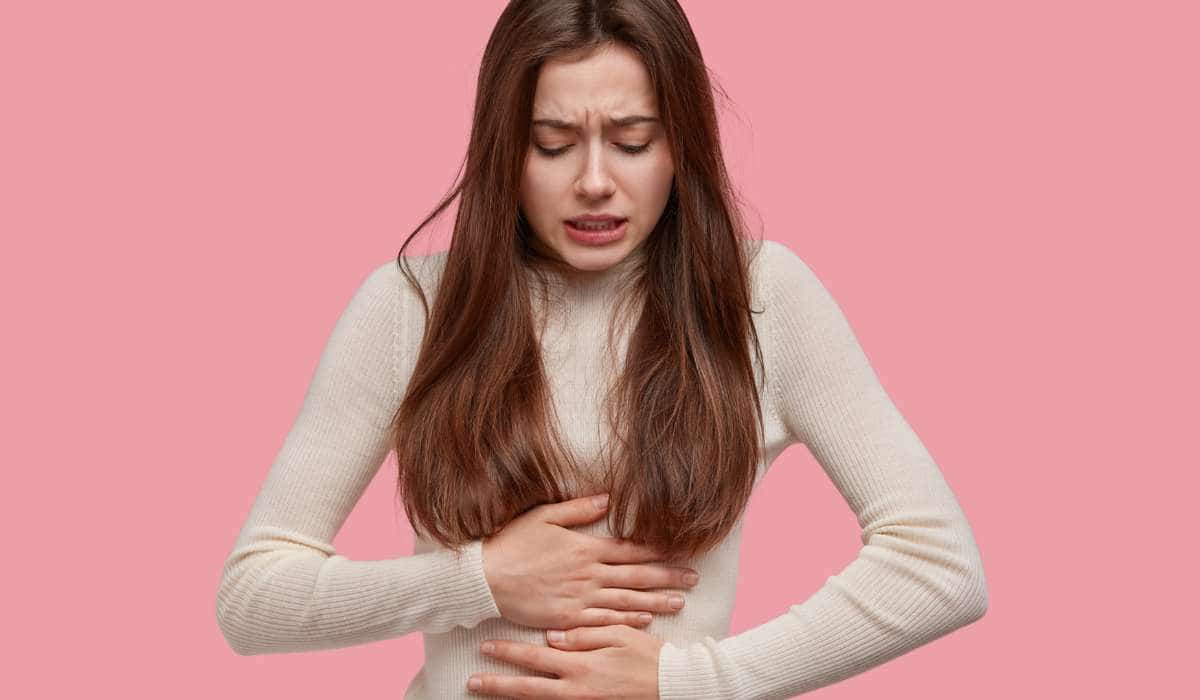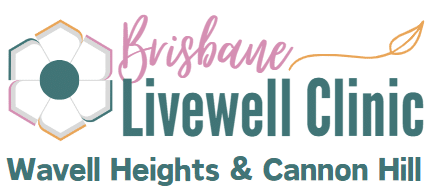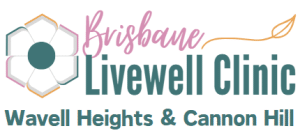Last Updated on 9 June 2024 by Brisbane Livewell Clinic
Polycystic Ovarian Syndrome (PCOS) is a common hormonal condition in Australia with approximately 8–13% of reproductive age women diagnosed with the condition(1). If you have PCOS it highly likely that you are insulin resistant with around 80% of women that have PCOS being insulin resistant. Let’s dive into what this actually means and what management through diet, adequate nutrients and hormonal support can look like for long-term support.
How do I find out if I have PCOS?

PCOS is diagnosed through the specific Rotterdam criteria within the medical system defined by the RACGP(2), with a large rate of over-diagnosis it is important to note that 2 out of 3 of the following criteria has to be met for a formal diagnosis by your doctor. The criteria being:
- Oligo/anovulation (irregular periods or missed ovulation)
- Hyperandrogenism (symptoms such as hirsutism, high FAI or free testosterone in blood tests)
- Polycystic ovaries on ultrasound
Once diagnosed the common treatment for PCOS is Metformin within the medical system, however for those not wanting a lifelong new medication there are alternatives that have been shown to be just as effective as metformin for PCOS(5).
What is Insulin Resistance and why does it matter?

Insulin comes into the picture very strongly here, so what is insulin? Insulin is a hormone that regulates blood sugars and supports your bodies processes in using sugar for energy, it is released by the pancreas in response to glucose transporting it to be used as energy. Insulin resistance is the state where there is too much insulin, resulting in more sugar remaining in the bloodstream, as well as too much insulin circulating overall. Too much insulin can lead to disruptions to ovulation and cause the ovaries to make testosterone instead of oestrogen – this is what drives insulin resistant PCOS and the symptoms of an ovulation and hyperandrogenism.
It’s important to note that not everyone who has insulin resistance will get diabetes, but pre-diabetes is more likely to occur in people who already have some insulin resistance which can lead to Type 2 Diabetes if not managed correctly(3). To find out if you are Insulin resistant testing fasting insulin levels via a blood test will give an adequate understanding as to your insulin response, with blood glucose levels are not accurate for ascertaining this information alone.
Due to the direct effects high insulin levels can have on hormone production, ovulation success and overall health the control of insulin is really important for hormonal health, regular periods and fertility. PCOS is one of the most common causes of infertility within the 15% of couples who experience fertility concerns due to the lack of ovulation and irregular periods(6).
Recommendations to Optimise Insulin-Sensitivity

Within Naturopathy to support treating the condition, the underlying cause and giving long-term results it means diet, lifestyle and correct supplementation are all addressed. Dietary changes in relation to PCOS management and improving Insulin-sensitivity and blood sugar regulation are paramount to long-term condition management. Several studies have shown diet to be an effective method for managing insulin resistant PCOS alone(4). Some areas to consider include but are not limited to:
- Blood Sugar Regulation: Eating to optimise blood sugar levels by eating balanced meals high in protein, healthy fats and carbohydrates every 3-4 hours. By optimising blood sugar regulation it decreases the likelihood of Insulin resistance. With high protein intake being key here.
- Low Sugar diet: Sugar is the main driver of insulin resistance, with typical Australian diets containing high amounts of both added and natural sugars. By slowing down the intake and release of sugar, it prevents rapid spikes in your blood sugars and improves insulin-sensitivity. Avoid food and drinks high in sugar. In particular sugary drinks, desserts, cakes and biscuits.
- Cinnamon: Studies have shown cinnamon to significantly reduce fasting insulin and insulin resistance in women with PCOS(7), adding this to your daily diet in smoothies, as a tea, on roasted vegetables and into baking where possible is a great way to increase overall cinnamon intake and support a healthier insulin response. Studies were done using 1.5g, 3 times per day in capsule form so the therapeutic dosage can be difficult to reach through food alone, however is still extremely helpful for long-term management.
- Myo-inositol: This supplement and particular form of inositol has been shown effective in decreasing fasting insulin, reducing testosterone, lowering BMI and improving androgen based symptoms in women with PCOS(8). It is an effective and safe treatment with 84% less side effects experienced compared to the standard treatment of metformin but the same effectiveness as shown within a 2023 meta-analysis overviewing data of 1691 patients(9).
Working with a naturopath to support the underlying drivers of PCOS and Insulin Resistance ideally in their early stages means optimising long-term healthy, hormonal balance and longevity through prevention of further disease later in life. If you are experiencing or have PCOS and want to delve deeper into understanding the condition how to manage it our Naturopaths at Brisbane Livewell Clinic are highly experienced in this area and have many different strategies, herbal and nutritional support measures that can be tailored to your specific biochemistry and symptoms for optimal results.
We have these Wellness Blogs that may interest you. Click HERE or HERE or HERE
Your Practitioner may recommend THIS supplement.












